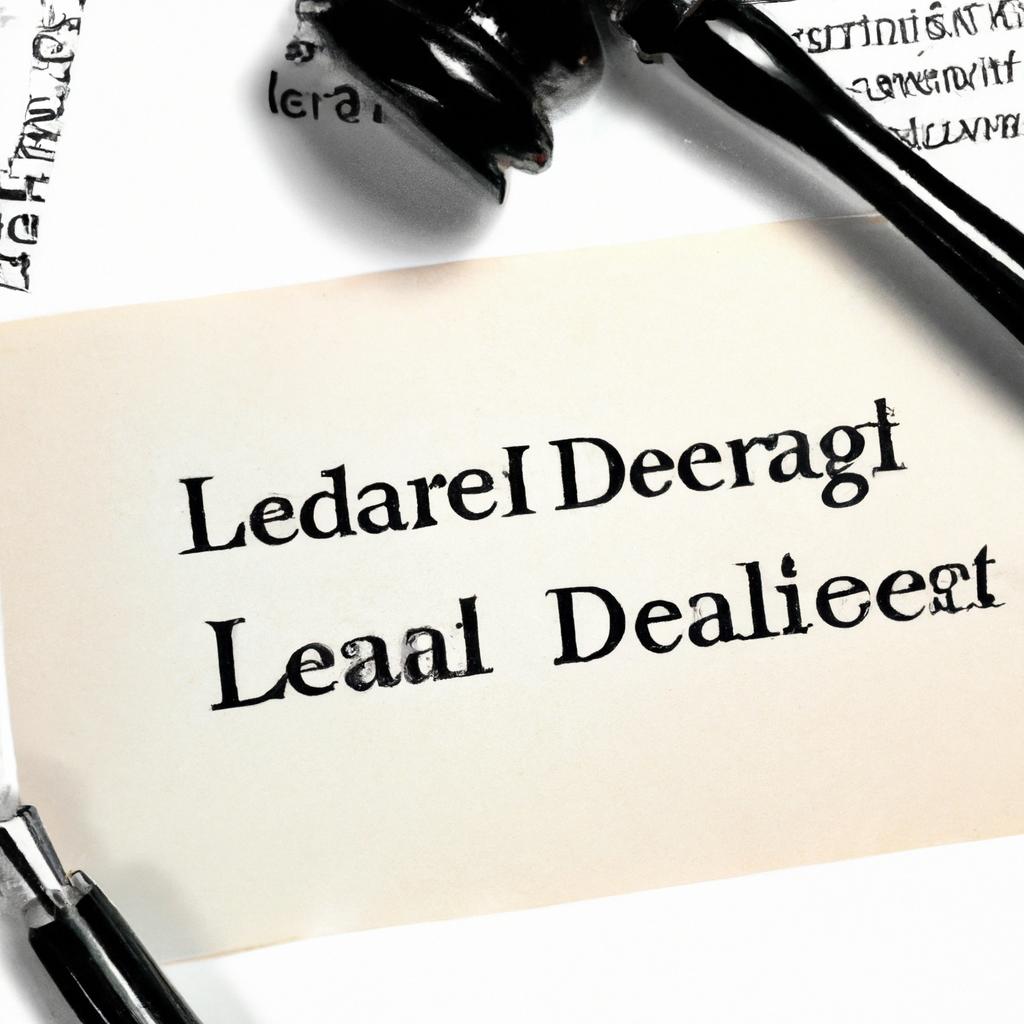As seasoned legal professionals at Morgan Legal Group, we understand that the process of obtaining a deed to your house can often be complex and overwhelming. In this article, we will provide you with a comprehensive guide on the necessary steps and considerations involved in securing a deed to your property. Whether you are a first-time homeowner or looking to transfer ownership, our expertise in estate planning and real estate law will ensure that you are equipped with the knowledge to navigate this important legal transaction with confidence.
Understanding the Importance of Obtaining a Deed to Your House
When it comes to owning a house, one of the most important documents you must have in your possession is the deed. This legal document serves as proof of ownership and provides important information about the property. Without a deed, you may encounter difficulties when trying to sell or transfer ownership of your house. It is crucial to understand the importance of obtaining a deed to your house to safeguard your property rights.
Obtaining a deed to your house involves various steps and legal considerations. It is essential to work with an experienced real estate attorney to ensure all necessary paperwork is properly completed and filed. Here at Morgan Legal Group, our team of knowledgeable attorneys can guide you through the process of obtaining a deed to your house, providing you with peace of mind and security in your property ownership.

Navigating the Legal Process of Acquiring a Deed for Your Property
When it comes to acquiring a deed for your property, there are several important steps to navigate through the legal process. First and foremost, it is crucial to understand the different types of deeds that can be used to transfer ownership of a property. These include:
- General Warranty Deed: Provides the greatest protection for the buyer as it guarantees clear title to the property.
- Special Warranty Deed: Ensures clear title only for the period during which the seller owned the property.
- Quitclaim Deed: Transfers whatever interest the seller has in the property, without any guarantees.
Next, it is essential to conduct a title search to ensure that there are no outstanding liens, judgements, or other encumbrances on the property. Once the title search is complete and the deed is drafted, it must be signed, notarized, and recorded with the appropriate county office. Consulting with a knowledgeable real estate attorney can help streamline the process and ensure that all legal requirements are met.

Key Considerations When Applying for a Deed to Your Home
When looking to obtain a deed to your home, there are several key considerations to keep in mind to ensure a smooth and successful process. One important factor to consider is the type of deed you are applying for. There are various types of deeds, including warranty deeds, quitclaim deeds, and special warranty deeds, each with its own implications and legal requirements. It is essential to understand the differences between these deeds and choose the one that best suits your needs.
Additionally, it is crucial to ensure that all necessary documents are in order before applying for a deed to your home. This includes ensuring that the property title is clear of any liens or encumbrances, as well as verifying the accuracy of the legal description of the property. Working with an experienced real estate attorney can help you navigate the process and avoid any potential pitfalls along the way.

Expert Recommendations for Securing a Deed to Your House
When it comes to securing a deed to your house, it is important to follow expert recommendations to ensure that the process is completed correctly and legally. One of the first steps in obtaining a deed to your house is to conduct a title search to verify ownership and any existing liens on the property. This will help to identify any potential issues that may affect the transfer of the deed.
Once the title search is completed, it is recommended to work with a qualified real estate attorney to draft the deed and navigate the legal requirements for transferring ownership. Additionally, it is important to file the deed with the appropriate government office, such as the county clerk’s office, to make the transfer official. By following these expert recommendations, you can secure a deed to your house with confidence and peace of mind.
Q&A
Q: How do I obtain a deed to my house?
A: To obtain a deed to your house, you’ll need to visit the County Clerk’s office in the county where the property is located.
Q: What documents do I need to bring with me?
A: You’ll need to bring a valid form of identification, such as a driver’s license or passport, as well as any documents related to the property, such as a purchase agreement or mortgage documents.
Q: Is there a fee to obtain a copy of the deed?
A: Yes, there is usually a small fee to obtain a copy of the deed from the County Clerk’s office.
Q: Can I obtain a copy of the deed online?
A: Some counties offer online access to property records, where you can download a copy of the deed for a fee. Check with the County Clerk’s office to see if this option is available.
Q: What do I do with the deed once I have it?
A: Once you have the deed, it’s important to keep it in a safe place, such as a safe deposit box or fireproof safe, as it is a vital document proving ownership of your property.
To Wrap It Up
In conclusion, obtaining a deed to your house is a crucial step in securing your ownership of the property. By following the necessary legal procedures and working closely with the relevant government authorities, you can ensure that your rights as a homeowner are protected. Remember, the deed serves as undeniable proof of your ownership, so it is important to keep it in a safe place. If you ever have any questions or concerns about the deed to your house, don’t hesitate to seek advice from a real estate attorney or a trusted legal professional. With the right guidance and understanding, you can navigate the process of obtaining a deed with ease and confidence.







